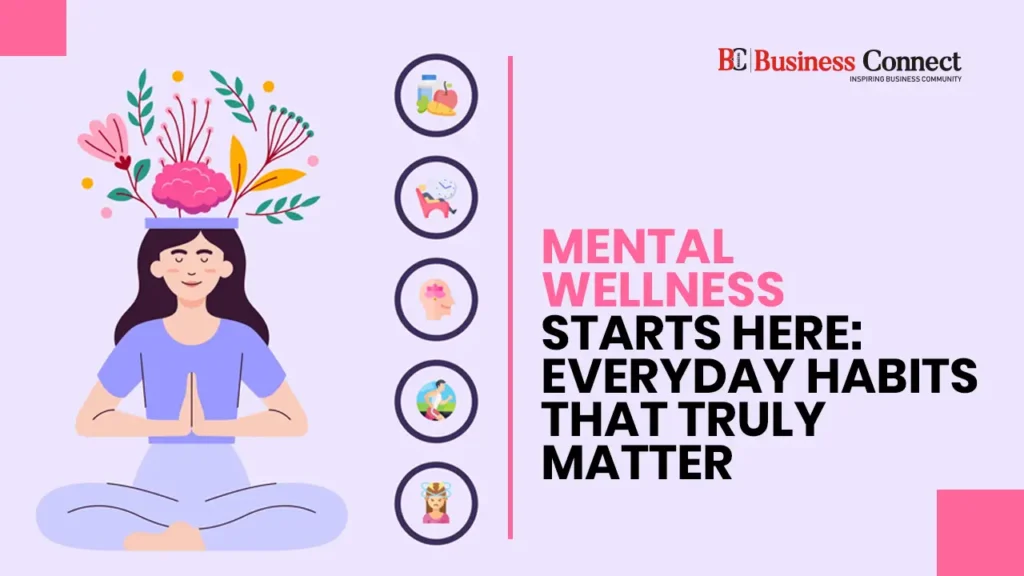Written By – Jaya Pathak
World Health Organization defines mental wellness as “a state of well-being which enables people to cope with the stresses of life, realize their abilities, learn well and work well and contribute to their community. It is truly an essential component of health and well-being that underpins our individual and collective abilities to make decisions, build relationships and shape the world we live in mental health is a basic human right. And it is crucial to personal, community and socio economic development.”
What are the factors which affects our mental health and what helps protect it?
- Personal factors: There are certain personal factors which affect our mental health including genetics. We may inherit certain things which can make us prone to anxiety or depression. Personal factors also include emotional skills, the way we understand and manage our feelings to keep our mind strong.
- Life circumstances: Family childhood have a long lasting impact on the mental health of a person. There are certain people who have traumatic experiences in their childhood which leaves long lasting impact on that person. Social and economic factors also play a crucial role in the mental wellbeing. Poverty global violence and inequality in an unsafe environment can put extra stress on the minds of individuals.
- Protective factors: These are the good factors which strengthen the mental well-being of an individual. It could be a supportive relationship which makes an individual feel valued weird the acquisition of new skills and have a meaningful can give purpose and confidence to a person.
It is to be noted that there is no any single factor which can cause mental illness. Mental illness is the mixture of risk as well as protection in the life of an individual which shapes the overall well-being.
There are several ways in which we can protect our mental well-being and help others as well:
- We can promote mental well-being by teaching emotional skills and schools and workplaces to support staffs.
- Since mental health is influenced by various factors, we can provide better health services, learning environment and work life experience to individuals.
- If we can spot any troublesome situation then we, as a society short support that individual to stop problems getting worse.
Everyday habits to boost mental wellbeing
There are certain everyday habits which you can integrate in your daily life to boost your mental wellness. Some of them are listed below:
- Take quality sleep: Sleeping is non negotiable for mental health. A consistent sleep schedule allows the brain to detoxify, process emotions and strengthen neural connections. Lack of quality sleep can increase the cortisol levels and may lead to anxiety, irritation and even depressive symptoms over the period of time. You can track your sleep patterns and adjust your bedtime accordingly. For a good sleep, you can perform calming activities such as reading at least 30 minutes prior to lights out.
- Stay physically active: Physical activity is not just needed for weight loss; it is quite crucial for your mental wellness as well. Regular physical activity releases dopamine, serotonin and endorphins which are the hormones related to pleasure and motivation. These hormones reduce stress and boost your overall mood. Regular physical activity improves your quality of sleep reduces anxiety levels.
The World Health Organization recommends 150 minutes of moderate intensity aerobic activity per week.You can find any activity which you enjoy and practice it daily. It will significantly improve your emotional well-being by lowering the cortisol levels and enhancing Serotonin production to regulate your mood. - Balanced diet: What you are feeding in your body affects the way you feel. Your diet must be rich in whole grains, fruits, vegetables, proteins, true biotics and omega-3 to support the functioning of your brain and reduce inflammation. Nutrition deficiency such as deficiency of vitamin B, magnesium and omega-3 highly influences your mood. you must keep your blood sugar level under control through intake of regular and healthy meals. Stay hydrated throughout the day as it will boost your focus and lower fatigue.
- Social connections: Man is a social animal. By building social connections you can protect yourself against depression and loneliness. You can talk to your family and friend to maintain emotional bonds with them. These social connections provide you the support and a sense of belongingness which is a key component of strong mental health.
- Meditation: Meditation is the key to mental Wellness as it draws you from rumination and worry and put you in a set of minds where you feel stable. Even if you practice 10 minutes a day then you can observe in your body that the stress levels are reduced and you are getting emotional clarity. Meditation helps an individual to become more aware of their emotions in spite of getting overwhelmed by them. It results in reduction of anxiety and improvement of mood. It strengthened attention and develops patience in an individual.
- Limit your screen time: If you are screwing throughout the day and watching reads then it can lead to isolation and even decreased self esteem. Therefore, you must set clear boundaries what you want to see in social media and up to what time you want to give on such platforms. Usage of social media platforms can give your brain a break and reduce anxiety but you must address what you want to see as it highly affects your mind.
Conclusion
Mental illness is not like a magic wand will cure all your problems, but it is about the small and consistent actions which you will take. By putting such habits into your everyday life, your mental level will surely boost.
Add Business Connect magazine to your Google News feed



